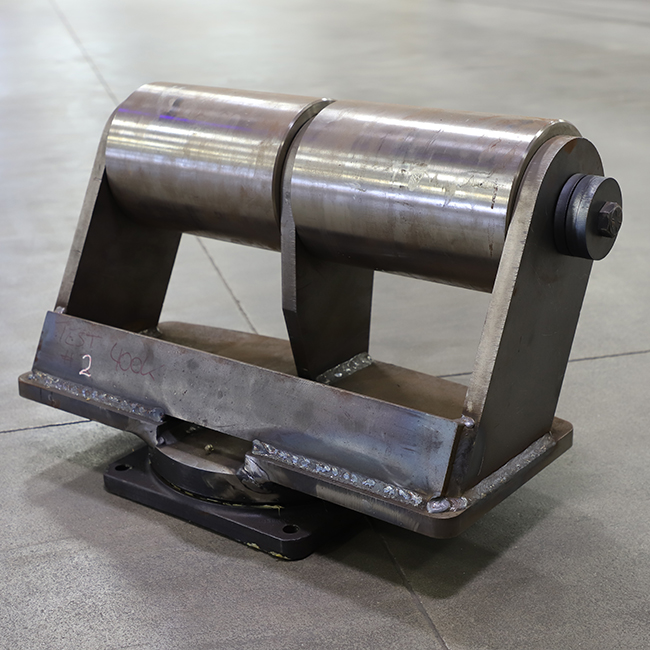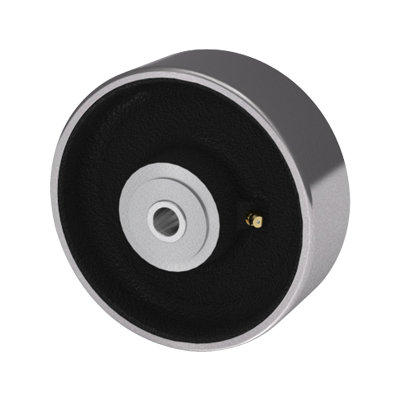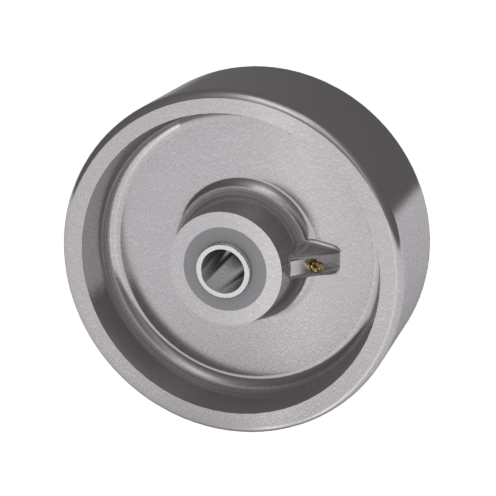

When comparing Forged Steel Wheels and Cast Iron Wheels, each has advantages and disadvantages, which we’ll cover in this blog. One thing to note when comparing these two types of wheels is the manufacturing processes each undergoes, which affect costs, bonding ability, and strength.
Forged Steel Wheels, as the name implies, are manufactured in a forging operation. Forging is the term for shaping metal by using localized compressive forces. Forging can be done in a cold operation or a hot operation. For industrial wheels, a hot forging operation is used.
After the weight of the part is determined, a slug of steel round of appropriate diameter is cut and pre-heated to red hot. The steel is then drop forged, shaping the slug through repetitive impacts. The flash is sheared before the steel can cool. The part is then placed on a conveyor for a slow cooling process.

Cast Iron Wheels are manufactured by melting pig iron while adding substantial quantities of scrap iron and steel scrap. Undesirable contaminants (e.g., phosphorus and sulfur) are removed at various steps that affect the material’s overall strength.
The melting process is done in a blast furnace known as a cupola or electric induction furnace. The material is wholly liquefied and then carefully poured into a sand mold. The casting is then removed from the sand mold, and final cooling occurs. The final grade of the grey iron is determined by the absolute tensile strength (Grade 30 is 30,000 lbs. tensile strength).
The microscopic structure of the two materials is significantly different and impacts the overall strength of the material/product. During the forging process, the molecular structure is in alignment and never disrupted during the forging process. Hence, the power in the virgin material is never lost. However, the original design needs to be maintained in casting, and a new facility with very little continuity is created, resulting in an insignificant reduction in strength.

When choosing between a Forged Steel Wheel and a Cast Iron Wheel, there are many factors to consider. However, getting the correct wheel the first time will minimize long-term costs by reducing downtime and maintenance costs. The experienced engineering group at Caster Concepts, Inc. can help you determine the best industrial caster for your application.